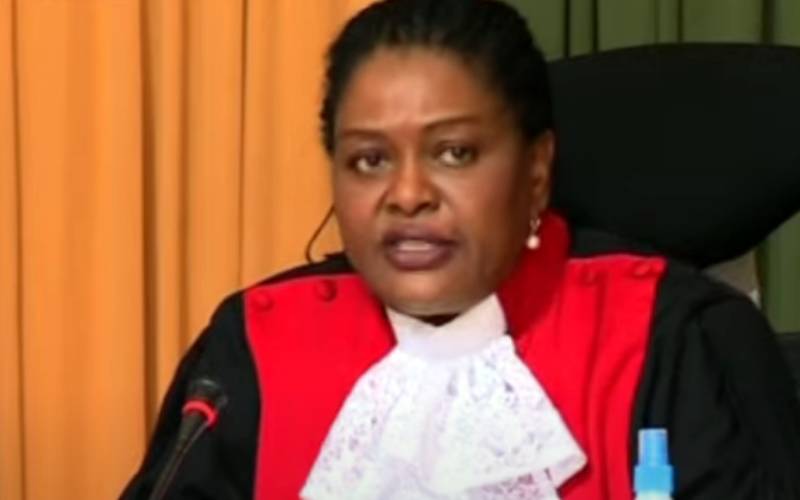×
The Standard e-Paper
Smart Minds Choose Us

Supreme Court Judge Njoki Ndung’u reading her judgement on BBI on March 31, 2022. [Standard]
Supreme Court judge Njoki Ndung’u on Thursday, March 31, held that President Uhuru Kenyatta, just like Kenyan civilians, is within his right to initiate changes to the Constitution of Kenya through the popular initiative route.